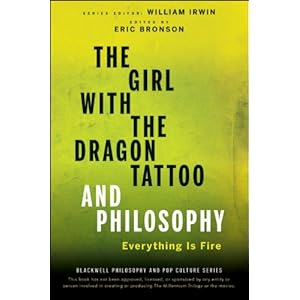My essay, "Hacker's Republic: Information Junkies in a Free Society," explores the ethics of hacking and how to balance freedom, responsibility, and privacy in the modern technological age. An abbreviated version of the essay was printed in The Philosophers' Magazine issue #54 under the title "Hacker's Ethics," so it should give some sense of the flavor of the full piece.
In the essay, I make the argument that WikiLeaks founder and faceman Julian Assange possesses a lot of the same core traits as the series' protagonist, Lisbeth Salander, and that these traits are intimately tied into why both have become hackers.
But these traits are no longer limited to an eclectic "hacker class" of individuals. It turns out that society as a whole has begun to adopt these ethics, in a trend toward openness on all fronts. Young people have very different ideas about ownership, privacy, and cooperation than past generations, and the interaction of these norms lie at the heart of the Millenium trilogy ... as well as at the heart of the modern, real-world controversies of the behavior of WikiLeaks.
In the essay, I make the argument that WikiLeaks founder and faceman Julian Assange possesses a lot of the same core traits as the series' protagonist, Lisbeth Salander, and that these traits are intimately tied into why both have become hackers.
But these traits are no longer limited to an eclectic "hacker class" of individuals. It turns out that society as a whole has begun to adopt these ethics, in a trend toward openness on all fronts. Young people have very different ideas about ownership, privacy, and cooperation than past generations, and the interaction of these norms lie at the heart of the Millenium trilogy ... as well as at the heart of the modern, real-world controversies of the behavior of WikiLeaks.
The essay pulls thoughts from several sources, most significantly Hackers: Heroes of the Computer Revolution by Steven Levy and David Brin's The Transparent Society, as well as news reports related to WikiLeaks and Assange. Below are links to the original trilogy of books, as well as to the Swedish film version. An American film adaptation of the first book is set to hit theaters on December 21.


No comments:
Post a Comment